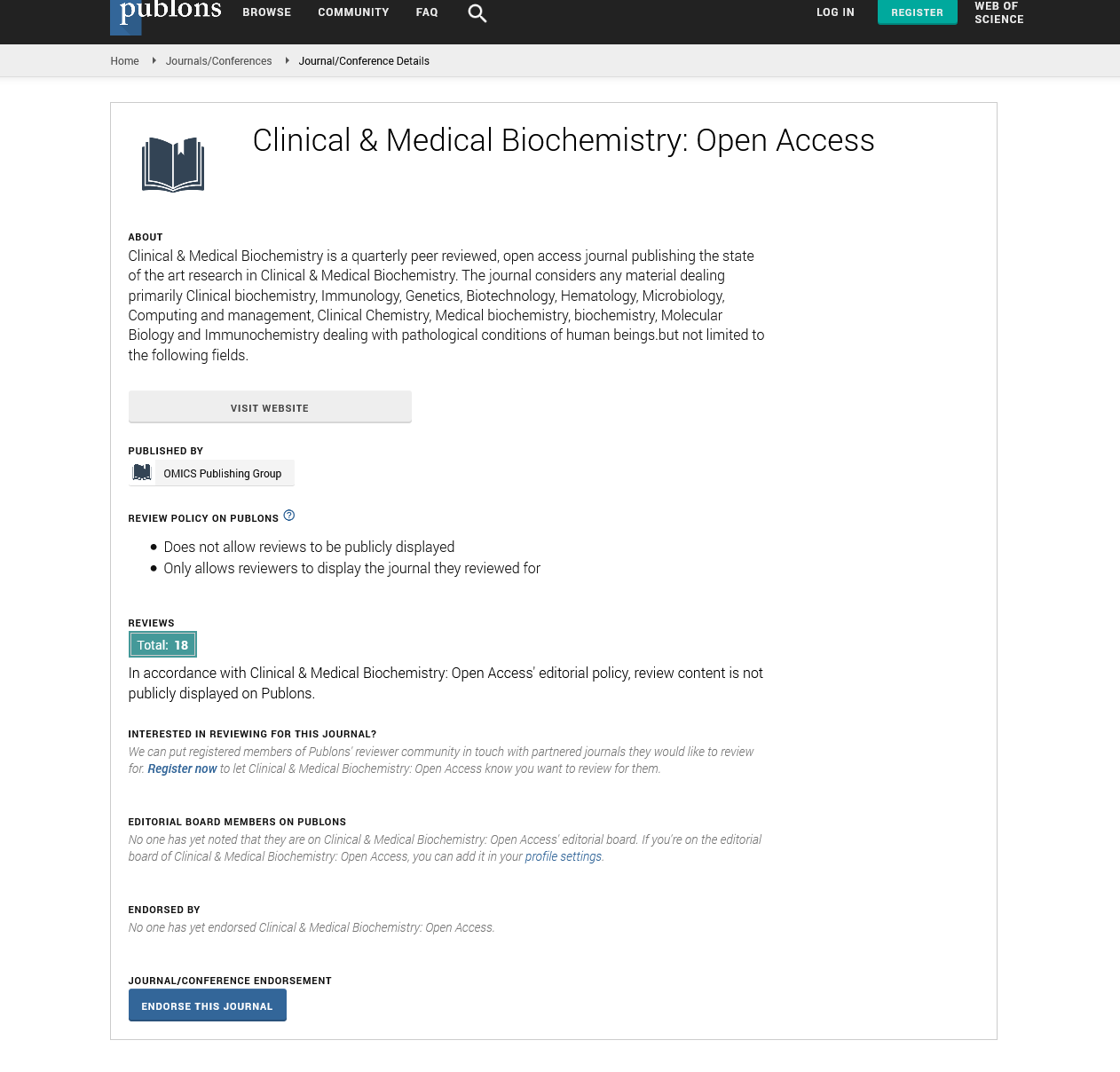Indexed In
- RefSeek
- Directory of Research Journal Indexing (DRJI)
- Hamdard University
- EBSCO A-Z
- OCLC- WorldCat
- Scholarsteer
- Publons
- Euro Pub
- Google Scholar
Useful Links
Share This Page
Journal Flyer

Open Access Journals
- Agri and Aquaculture
- Biochemistry
- Bioinformatics & Systems Biology
- Business & Management
- Chemistry
- Clinical Sciences
- Engineering
- Food & Nutrition
- General Science
- Genetics & Molecular Biology
- Immunology & Microbiology
- Medical Sciences
- Neuroscience & Psychology
- Nursing & Health Care
- Pharmaceutical Sciences
Abstract
Virus Engineered Immune Circuit Possibly Gates Neuro-Excitability Outcomes in Brains
Priyanka Mishra* and Frederic Pio
Tryptophan derivatives, including serotonin, are the main neurotransmitters that link food cues to neuronal behavior and metabolism, in a wide variety of organisms. In mammalian gut, serotonin is synthesized within populations of enterochromaffin cells and neurons of the enteric nervous system, distributed throughout the gastrointestinal tract and are under direct or indirect control of the microbiota. Dysregulation of the signaling by neurotransmitter dopamine and serotonin can affect mood, appetite and locomotion consequences thereby contributing to several human neurological diseases, including parkinson, schizophrenia, autism and attention deficit hyperactivity disorders. Besides such annotations, remodeling of the intestinal microbial community structure by the gut microbiota could impact the development and/or function of such serotonin-producing cells, but this has yet to be claimed. The gut flora of healthy individuals is composed of a large variety of bacteria and forms an important part of the body’s immune system, including being the first line of defense in any fight against pathogen invasion. In most diseases, the gut flora develops a limited diversity compared to that of a healthy individual and its modified interaction with the host can result in abnormalities, such as brain-function impairment. It is also well known that the function and composition of gut flora can be influenced by many external factors, including food and environment contaminants. But the exact mechanisms for how these factors affect the gut flora and result in disease, remain to be elucidated. While serotonin and octopamine have evolutionarily conserved roles over diverse phyla, their roles in nematode model Caenorhabditis elegans (C. elegans) is similar to that in the model organism Drosophila, where it induces behavioral outcomes upon food intake, which facts that this mechanism is evolutionary conserved, although not completely understood. In C. elegans, nutritional availability is directly linked to food behavior and can be sensed by the rate-limiting enzyme Tryptophan 2,3-Dioxygenase (TDO in human, TDO-2 in C. elegans) in the serotonin-kynurenine pathway that affects serotonin and kynurenic acid levels that results in different excitability states and lifespan extension in response to food cues.
Published Date: 2024-08-12; Received Date: 2020-08-11

